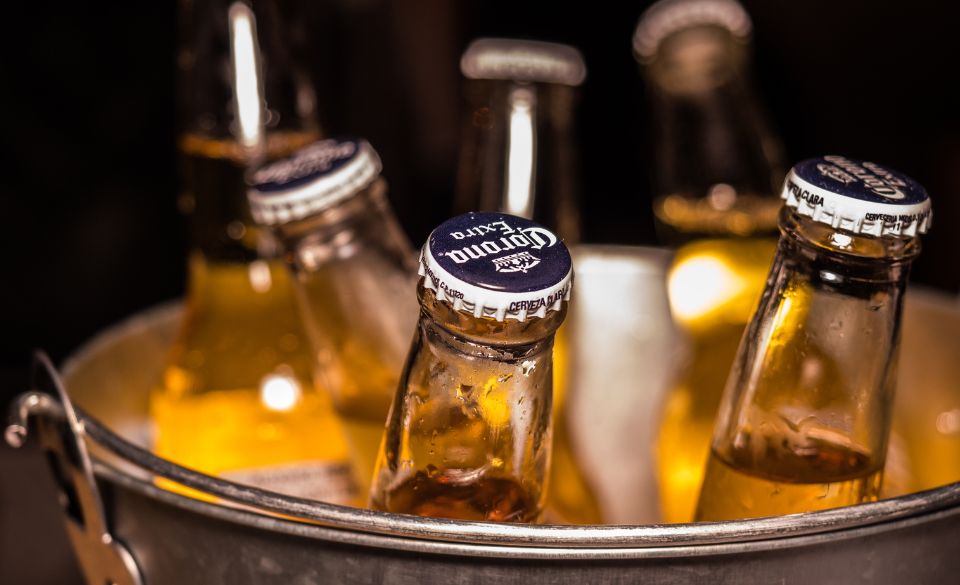
How Does Beer Impact Your Running Routine
Page Contents
For those post-run moments where you contemplate the compatibility of a cold beer with your workout efforts, you’re not alone. The perennial question arises: does beer hinder my running performance? Let’s delve into the effervescent world of post-exercise brews and uncover the nuances that truly unfold behind the scenes.
Rest assured, this exploration won’t deliver a verdict as stark as a zebra crossing. Instead, we’re set to unravel this mystery collaboratively. Whether you view beer as a recovery elixir or a fitness companion, I’ve got the details for you.
Ready to navigate the dynamics of beer and running? Let’s begin.
Beer and Overall Health
Let’s venture into the fascinating intersection of post-run thirst and the allure of beer. The consideration of whether those cold cans could serve as a fitting reward after a run is a common one. Before we raise our glasses, let’s examine scientific findings shedding light on this intriguing topic.
A group of UK researchers aimed to untangle the connection between alcohol, exercise, and the risk of chronic diseases. Participants were categorized into occasional drinkers, ex-drinkers, and abstainers. Surprisingly, those who occasionally enjoyed beer seemed to benefit from added protection against overall mortality and cardiovascular disease.
In simpler terms, moderate beer consumption appeared to offer health benefits. The magic lies in beer’s moderate alcohol content and substantial volume, making it a balanced choice among alcoholic beverages that harmonizes with your well-being routine.
Nutritional Richness:
Beer takes the spotlight as a more nutrient-packed option among alcoholic beverages. The partnership between barley and hops produces antioxidants, particularly flavonoids, known for their healthful properties.
Heart’s Guardian:
The New England Journal of Medicine unfolds a compelling tale – moderate intake of ANY alcoholic drink is associated with a lower risk of cardiovascular disease, creating a harmonious rhythm that your heart appreciates.
Cholesterol’s Balancing Act:
Loaded with soluble fiber, beer aids in managing LDL, the infamous “bad” cholesterol. This soluble fiber also contributes to balanced blood sugar and cholesterol levels, adding a touch of wellness to your glass.
Kidneys’ Silent Cheers:
Researchers highlight a fascinating connection – moderate beer enthusiasts, regardless of gender, enjoy a reduced risk of developing kidney stones, as if beer raises a toast to your kidneys and their good health.
Bones of Steel:
Packed with silicon, essential for bone and connective tissue growth, beer contributes to bone strength, whispering to your bones to stay resilient.
The Stress Whisperer:
Among the reasons why beer is cherished, its ability to induce relaxation takes center stage. A comforting sip can unwind stress, fostering a sense of calmness for both body and mind.
Note – Moderation is crucial to reap these benefits.
Beer and Hydration
Navigating the realm of hydration and alcohol involves careful steps. Alcohol, like a spirited jester, may entice you to indulge while playing a cheeky trick on your hydration levels.
Alcohol increases urination, commanding your body to release more fluids with each sip. One unit of alcohol leads to the production of 100 ml of extra urine. Science reveals that post-workout drinks with approximately 4 percent alcohol could potentially affect recovery by increasing restroom visits.
In the context of running, combining alcohol indulgence with a run can lead to dehydration turmoil. As you sweat during your run, alcohol’s diuretic tendencies exacerbate fluid loss. Dehydration and running together can disrupt performance.
The Light Beer Beacon:
Not all beers are equal. Light beer, with lower alcohol content, can quench thirst without triggering significant dehydration. Beer contains not just alcohol but a good amount of water too.
Research Insights:
Studies suggest that mild to moderate beer consumption, coupled with water, poses no significant risk to hydration. Light alcohol doses have a trivial impact on hydration, with the body diligently restoring fluid balance.
Beware the Strong Spirits:
However, not all spirits are benevolent. Potent options like Gin and Whiskey may lead to more fluid loss than gain.
Beer And Electrolytes
Electrolytes, encompassing potassium, sodium, calcium, and magnesium, function as the body’s electrical magicians, orchestrating water balance, maintaining pH harmony, and facilitating nerve transmissions. However, the challenge arises during prolonged physical activity, where not only sweat is shed but also valuable electrolytes. Sodium, potassium, and magnesium deplete with each stride, leaving individuals susceptible to headaches, muscle spasms, and dizziness.
In an intriguing twist, certain beers emerge as unsung heroes in electrolyte replenishment. These brews not only tantalize the taste buds but also provide essential electrolytes. Some even fortify themselves with a mineral boost, earning the affectionate moniker “fitness beers.” Imagine a post-workout beer that not only quenches thirst but also nurtures electrolyte reservoirs. Research supports the feasibility of replenishing energy stores and electrolytes with a post-workout beer.
Beer And Protein Synthesis
After an intense run, muscles resemble courageous soldiers returning from a fierce battlefield—battered, wounded, and in need of healing. Protein synthesis, a complex biochemical ballet, stitches new proteins to mend damaged muscle fibers. However, a disruptive force lurks in the shadows—alcohol, the uninvited mischief-maker crashing the party.
Studies reveal the grim truth: indulging in alcohol post-exercise can disrupt protein synthesis, potentially reducing it by up to a third. This interference delays muscle repairs, impacting recovery and slowing your comeback.
The research unveils a more chilling aspect—excessive alcohol, the nemesis of muscle growth, can hinder the body’s efforts to sculpt new muscle mass. It’s akin to denying a sculptor their tools, resulting in a less impressive masterpiece.
There’s a silver lining, though. The amount of alcohol needed to trigger this negative impact is considerably higher than what one would find in a casual post-run beer. While the research casts a shadow, it also offers a reassuring ray of light: the occasional light beer might not be the arch-nemesis of your muscle recovery journey after all.
Frequently Asked Questions (FAQ)
Does beer ruin stamina?
Beer, when consumed in moderation, is unlikely to ruin stamina in a general sense. However, excessive alcohol consumption, including beer, can have negative effects on overall health and fitness, potentially impacting stamina. Alcohol is a depressant that can impair motor skills, coordination, and reaction time, which might be detrimental to physical performance. Additionally, alcohol is dehydrating, and dehydration can contribute to fatigue and decreased stamina. It’s crucial to emphasize moderation and consider individual tolerance levels when incorporating beer into a fitness routine.
Is beer bad for cardio?
Moderate beer consumption is generally not considered detrimental to cardiovascular health and may even have some potential benefits. Research has suggested that moderate alcohol intake, including beer, might be associated with a lower risk of cardiovascular disease. However, excessive alcohol consumption can have adverse effects on the cardiovascular system, including high blood pressure and an increased risk of heart-related issues. The key lies in moderation – enjoying beer in limited quantities may not necessarily be bad for cardio, but excessive drinking can pose risks.
Do elite runners drink beer?
Elite runners, like individuals in any other profession, have diverse lifestyles and preferences. Some elite runners may choose to consume alcohol, including beer, in moderation, while others may abstain entirely. The decision to drink beer is often influenced by individual beliefs, training regimens, and health considerations. In some cases, elite athletes may choose to avoid alcohol to optimize their training, recovery, and overall performance. It’s important to note that each athlete’s approach to alcohol consumption is highly individual, and there is no universal rule regarding beer or other alcoholic beverages among elite runners.
Why should runners avoid alcohol?
Runners may consider limiting alcohol consumption or avoiding it for several reasons:
Dehydration: Alcohol is a diuretic, meaning it increases urine production, leading to dehydration. Runners already lose fluids through sweat during exercise, and combining this with the dehydrating effects of alcohol can exacerbate the risk of dehydration.
Impaired Recovery: Alcohol can interfere with the body’s ability to recover after a run. It can disrupt sleep patterns, hinder muscle recovery, and delay the repair of tissues. Adequate recovery is essential for improving performance and preventing injuries.
Impact on Performance: Alcohol has a depressant effect on the central nervous system, affecting coordination, reaction time, and cognitive function. This can compromise running performance, particularly if consumed in excess or close to a workout.
Nutrient Absorption: Alcohol can interfere with the absorption of essential nutrients, including vitamins and minerals, which are crucial for overall health and optimal athletic performance.
Caloric Content: Alcoholic beverages can be calorie-dense, and excessive alcohol consumption can contribute to weight gain. Maintaining a healthy weight is often a priority for runners to optimize performance.
While moderate alcohol consumption may not be harmful for all runners, it’s essential to be mindful of individual tolerance levels, hydration needs, and the timing of alcohol consumption concerning training sessions.
Which alcohol is best for runners?
If runners choose to consume alcohol, some options may be considered “better” than others due to lower alcohol content, fewer calories, or additional nutritional components. However, it’s crucial to emphasize moderation in all cases. Here are a few considerations:
Light Beer: Light beers generally have lower alcohol content and fewer calories compared to regular beers. They can be a better option for those looking to moderate their alcohol intake and calorie consumption.
Wine: Red wine, in particular, contains antioxidants like resveratrol, which may have some health benefits. However, it’s essential to limit intake and be mindful of the alcohol content.
Clear Spirits: Spirits like vodka or gin, when mixed with low-calorie mixers, can be lower in calories compared to some other alcoholic beverages. However, they still contribute to dehydration, so moderation is key.
Hydration Considerations: It’s advisable to consume water alongside alcohol to mitigate dehydration. Alternating between alcoholic drinks and water can help maintain hydration levels.
Ultimately, the “best” alcohol for runners depends on individual preferences, tolerances, and health considerations. It’s crucial to be aware of the potential impact of alcohol on hydration, recovery, and overall performance and make choices that align with one’s fitness goals.
Final Words – How Does Beer Impact Your Running Routine
In those contemplative moments post-run, when a cold beer beckons and you ponder its compatibility with your workout efforts, rest assured, you’re not alone. The perennial question lingers: does beer hinder my running performance? Our journey into the effervescent world of post-exercise brews has unraveled nuanced truths behind the scenes.
This exploration refrains from delivering a verdict as stark as a zebra crossing. Instead, we’ve collaboratively delved into the mystery. Whether you see beer as a recovery elixir or a fitness companion, the details are now at your fingertips.
As we conclude our exploration into the dynamics of beer and running, it’s evident that moderation is the key to reaping the health benefits beer can offer. From its surprising protective effects on overall mortality and cardiovascular health to its nutrient richness and bone-strengthening properties, beer, when consumed moderately, has a place in the post-run scene.
Hydration, a critical aspect of both running and recovery, requires a cautious approach when alcohol is involved. The light beer beacon shines through, indicating that not all beers are equal, with lighter options minimizing the risk of dehydration.
Electrolytes, often lost during intense physical activity, find an unexpected ally in certain beers, affectionately known as “fitness beers.” These brews not only satisfy the taste buds but also contribute essential electrolytes, presenting a unique post-workout replenishment option.
The intricate ballet of protein synthesis, vital for muscle recovery, encounters its disruptor in the form of alcohol. Yet, the shadow cast by research reveals a silver lining — the occasional light beer, when consumed moderately, may not be the adversary of your muscle recovery journey.
In the end, the decision to include beer in your post-run ritual is a personal one, guided by an understanding of your body’s needs and a mindful embrace of moderation. So, whether you raise a glass to recovery or toast to your fitness journey, the effervescent world of post-exercise brews welcomes you with its intriguing complexities and potential benefits. Cheers to a well-balanced and informed approach to beer and running!


